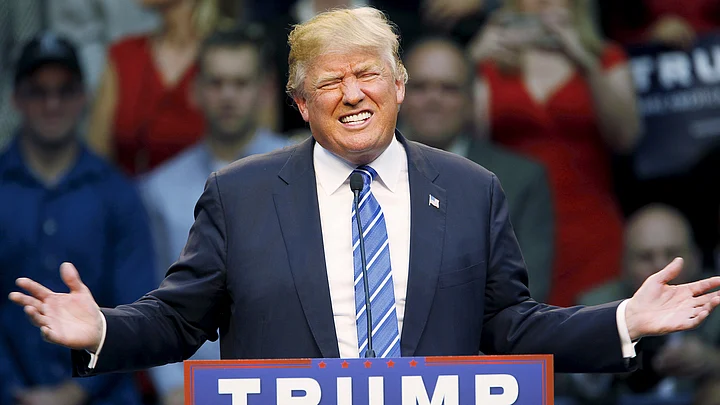Combative and insistent, US President Donald Trump declared anew on Tuesday that “there is blame on both sides” for the deadly violence last weekend in Charlottesville, Virginia, appearing to once again equate the actions of white supremacist groups and those protesting them.
He showed sympathy for the fringe groups' efforts to preserve Confederate monuments. The president's comments effectively wiped away the more conventional statement he delivered at the White House a day earlier when he branded members of the Ku Klux Klan (KKK), neo-Nazis, and white supremacists who take part in violence, as "criminals and thugs."
Trump’s advisers had hoped those remarks might quell a crush of criticism from Republicans, Democrats and business leaders.
But the president's retorts on Tuesday suggested that he had been a reluctant participant in that cleanup effort and renewed questions about why he seems to struggle to unequivocally condemn white nationalists.
The blowback was swift, including from fellow Republicans.
Senator Marco Rubio of Florida said Trump should not allow white supremacists "to share only part of the blame."
House Speaker Paul Ryan declared in a tweet that "white supremacy is repulsive" and there should be "no moral ambiguity," although he did not specifically address the president.
Trump's remarks were welcomed by former Ku Klux Klan leader David Duke, who tweeted: "Thank you President Trump for your honesty & courage to tell the truth."
Violence broke out Saturday in Charlottesville, a picturesque college town, after a loosely connected mix of white nationalists, neo-Nazis and other far-right extremists assembled to protest the city's decision to remove a towering statue of Confederate General Robert E Lee.
Heather Heyer, 32, was killed when a man plowed his car into a crowd of counter-protesters.
In the immediate aftermath, Trump placed the blame on “many sides.” On Monday, at the urging of his aides, he delivered a more direct condemnation of white supremacists. But he returned to his original arguments on Tuesday during an impromptu press conference in the lobby of his Manhattan skyscraper, declaring:
There are two sides to a story.
He acknowledged there were "some very bad people" looking for trouble in the group protesting plans to remove the statue. Trump also said:
But you also had people that were very fine people, on both sides.
Trump sided with those seeking to maintain the monument to Lee, equating him with some of the nation's founders who also owned slaves. Confederate monuments have become rallying points for supporters of both preserving and toppling them. Trump said:
So, this week it’s Robert E Lee. I noticed that Stonewall Jackson’s coming down. I wonder, is it George Washington next week and is it Thomas Jefferson the week after? You really do have to ask yourself where does it stop?
He continued: "You're changing history. You're changing culture."
The president's comments mirrored rhetoric from the far-right fringe. A post on Monday by the publisher of The Daily Stormer, a notorious neo-Nazi website, predicted that protesters are going to demand that the Washington Monument be torn down.
Trump's handling of the weekend violence has raised new and troubling questions, even among some supporters. Members of his own Republican Party have pressured him to be more vigorous in criticizing bigoted groups, and business leaders have begun abandoning a White House jobs panel in response to his comments.
Obama’s Tweet on Charlottesville, One of Most Liked in History
Former President Barack Obama’s tweet condemning Charlottesville attack is one of the most liked tweets on Twitter, according to tracking-site Favstar. Obama took to the micro-blogging platform on Saturday, post the Charlottesville attack and tweeted that “no one is born hating another person.”
The tweet preceded Ariana Grande’s tweet following the Manchester attack as the “most liked” tweet. It also secured the seventh position among the most retweeted tweets in Twitter’s history.
(At The Quint, we question everything. Play an active role in shaping our journalism by becoming a member today.)
